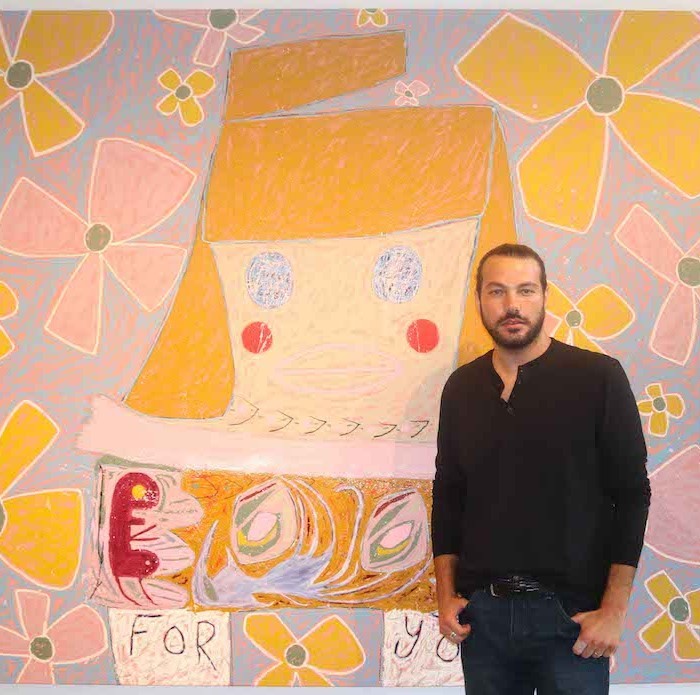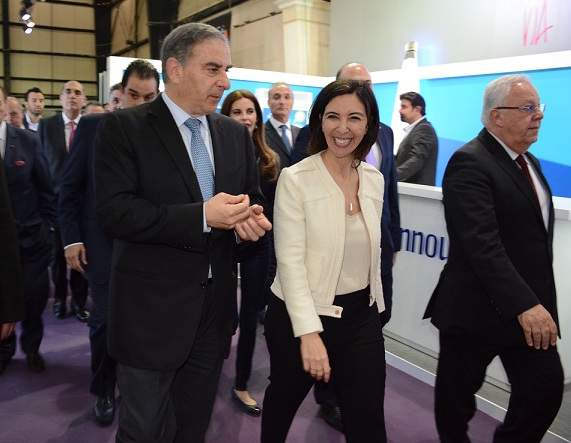Middle East
Expatriate Thoughts And Hopes For Change In Lebanon
By Dr. Robert Chahine, President of ALF
May 01, 2018
The American Lebanese Foundation (ALF), founded in 2004, strongly believes that optimism is always needed to help Lebanon address the sequence of crises that the country continues to navigate through since its independence. Most of the problems were the result of outside interference, usually generated by instabilities and wars involving neighbors. Through the “Arab Spring” Lebanon managed to remain relatively stable despite exposure to extremely dangerous forces of destruction, division and terrorism. These forces recently created pressures at all Lebanon’s borders, terrestrial or maritime, and sent into the country an incredible number of refugees, whose survival in and with Lebanon is clearly unsustainable.
During the most recent difficulties, despite the miraculous absence of runaway violence, Lebanon went through a prolonged period of constitutional vacuum, with no President and only a weak and somewhat divided government. Many problems arose and could not be effectively addressed. One of the most notorious issues was the inability to collect and dispose of garbage, in very important business and touristic regions. Corruption was believed to be a key factor underlying the problem. Yet the country remained relatively safe and somewhat stable, compared to the bordering sister, Syria, which continues to suffer from a very destructive war.
At the first opportunity, and despite the continued violence and difficulties in its neighborhood, Lebanon managed to constitutionally elect a President. The election was considered “miraculous” due to agreements and alliances of adversaries, and one hundred and eighty degrees position reversals of key leaders and political players. The new head of state was characterized as the “Strong President”, the first since the Lebanese civil war who came to power supported by a large partisan parliamentary group. He was also elected, per his demand, as a “Consensus President”. After appropriate parliamentary consultations he promptly nominated the best possible choice at the time, a previous adversary as Prime Minister and a coalition government was formed. One of the key contributions of this government was a new electoral law, based partially on the relativity principle, which was comfortably approved by parliament.
While we are fully aware of the saying in Lebanon and elsewhere, “The more things change, the more they stay the same”, we optimistically try to acknowledge that there are changes in Lebanon that shouldn’t be denied:
There is a new “strong president” elected miraculously by an alliance of adversaries and he happens to be the founder of the “current of change and reform” which evolved into the “national patriotic party”.
There is also a new electoral law intended to be forward looking (not returning to 1960). It introduces the relativity principle and makes a first step towards allowing the expatriates to vote abroad.
As we acknowledge the above forward-looking changes, the result of which being difficult to predict, we wish to remind ourselves and others that ALF has been on record advocating the “single district, one person one vote” principle. We have also generally believed that the best way to give an effective electoral role to the expatriates is to start by establishing the possibility of “absentee voting” for all. Nevertheless, we look at the fact that since there is change, there may be a chance for progress in a positive direction. And we sincerely wish that the new law can be implemented successfully, without difficulties, and hope that it produces some exciting surprises.
We therefore appeal to all Lebanese to vote in the biggest possible percentages. We are fully aware, as expressed by some important leaders and various thinkers and academics, that the time may not be ripe to achieve unity around the idealistic principles of full sovereignty, true neutrality and maximal prosperity. We are nevertheless confident that important steps towards the ultimate goals can be made through the upcoming election by unifying around attacking the target that nobody will dare defend openly: corruption or graft. We are encouraged that the President, other key leaders and several major parties are focusing their campaign speeches against corruption. We hope that all voters will remember that a lot of Lebanon’s unsolved problems are related, one way or another, to prevalence of strongly corrupt influences. We realize and respect the opinion of those who say that corruption may not be eradicated by the scribble of a pen, whether it came from the strong president or other powerful political and religious leaders. But valuable steps can be taken. And it may all start in the voting booth. We have heard from multiple sources that corruption has played and continues to have a significant role in impeding or slowing solutions of the country’s most vital problems: the refugees, the electricity, exploitation of the maritime energy sources and most notoriously the garbage, to name a few.
We also realize that there are corrupt politicians running in the upcoming elections who may probably win anyway. But we disagree with those who think all politicians in Lebanon are corrupt and incorrigible. There are honest people, old and new, running and there are some much more corrupt than others. There are also some credible candidates who are determined to fight corruption. We hope most Lebanese will target their vote to limit, if not completely eradicate corruption, and give a chance for change towards positive progress. All journeys start with first or early steps. The President could then further help the reform process by insisting on the implementation of the separation of ministerial executive positions from the legislative parliamentary seats.
We acknowledge that there are outside and geopolitical factors that the Lebanese may not be able to control through their democratic process. But they can certainly limit the risks and prevent the damage that can result from their missing a golden opportunity to improve the life standard of all citizens and inspire all leaders to focus on the interests of Lebanon and its people first.
The ALF has been honored by the selection of two of its Board Members to serve as Lebanese Ambassadors in the US and Jordan and is aware of the possibility that their new jobs may not allow them to continue participation in its Board. We are nevertheless compensated by our confidence that they will be among the most distinguished diplomats appointed during the Aoun Presidency. We hope our choice of optimism about Lebanon will be further rewarded by the election to parliament of some of our reformist friends, and the process will be crowned by the implementation of the President’s long stated plan of separation between the ministerial and parliamentary jobs.






























